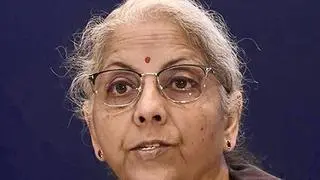The Centre must mount an aggressive programme of capital expenditure to the tune of about 2 per cent of GDP to pull the economy, which has been buffeted by the Covid-19 pandemic, out of the current morass, top economist and public policy thinker C. Rangarajan, said.
A well-integrated investment programme that focusses on ‘capital expenditure’ to give the desired “fiscal multiplier” will be the answer to the economy’s problem in a post Covid world, said Rangarajan, who is Chairman, Madras School of Economics, at the BusinessLine Knowledge Series webinar titled ‘Is India’s Economic Recovery Sustainable?’ on Monday.
Policy prescription
In a nearly 80-minute-long conversation with BusinessLine Editor Raghuvir Srinivasan, the former RBI Governor came up with a policy prescription for the Centre and the Reserve Bank of India to revive the economy.
Asserting that there is a need for the government expenditure to sustain the economic recovery seen over the past few months, Rangarajan cautioned that such expenses should be focussed on the capital expenditure front and not revenue expenditure.
Related Stories
Economy will shrink by just 6-7 per cent: C Rangarajan
Capital expenditure has stronger forward and backward linkages than other types of expendituresPainting an optimistic picture of growth recovery in the second half of this fiscal, Rangarajan said it is possible for the economy to pick up from here although the growth in the second quarter will be in the negative territory, just as it was in the first quarter.
Growth recovery optimism
“I do think the third and fourth quarters will be good and a large part of the decline in Q1 and Q2 will be compensated.
“I see the economy recovering to the levels seen in 2019-20, which anyway was not a good year with growth at 4.2 per cent and reminiscent of the pre-liberalisation era,” he said.
For the entire FY21, Rangarajan saw a growth contraction of 6-7 per cent. Further, he projected the combined fiscal deficit of the Centre and the States touching 14 per cent of GDP, calling it “unavoidable”.
“Some amount of monetisation of debt has to be done indirectly,” he said.
Next three set of reforms
Rangarajan identified three sets of reforms that need the immediate attention of the government: Reforms in the financial system, especially banking system; reforms in the power and telecom sectors, where the principles of liberalisation need to be applied; and governance reforms.
Bank recapitalisation in an expanded form is a requisite if one wants public sector banks to play a key role in the growth of the economy, said the former head of the Prime Minister’s Economic Advisory Council.
He also said that an “accommodative monetary stance” is warranted in the current situation. Further, Rangarajan, who was always known to be critical of high inflation, said he sees inflation hovering around 6 per cent.








Comments
Comments have to be in English, and in full sentences. They cannot be abusive or personal. Please abide by our community guidelines for posting your comments.
We have migrated to a new commenting platform. If you are already a registered user of TheHindu Businessline and logged in, you may continue to engage with our articles. If you do not have an account please register and login to post comments. Users can access their older comments by logging into their accounts on Vuukle.